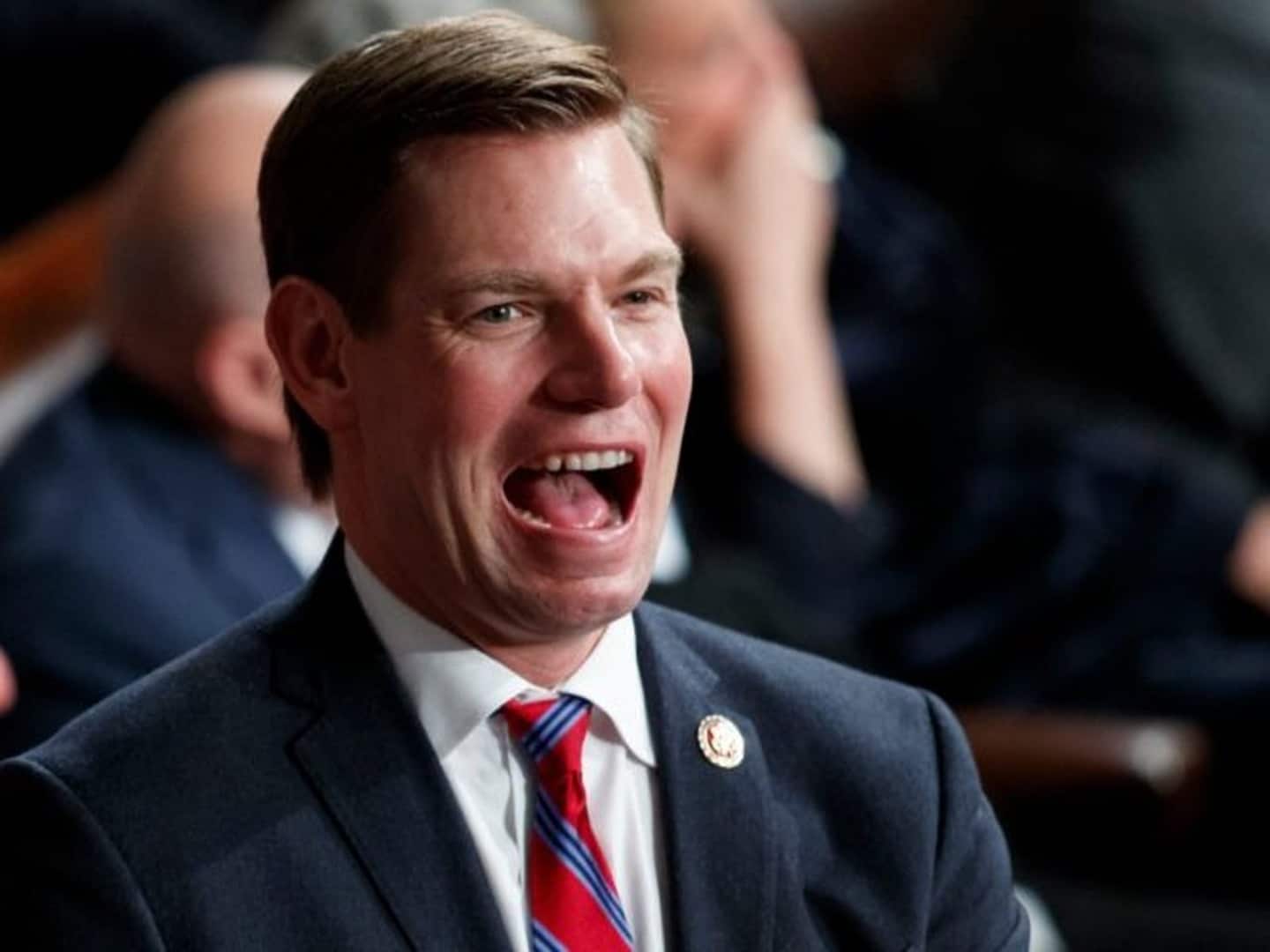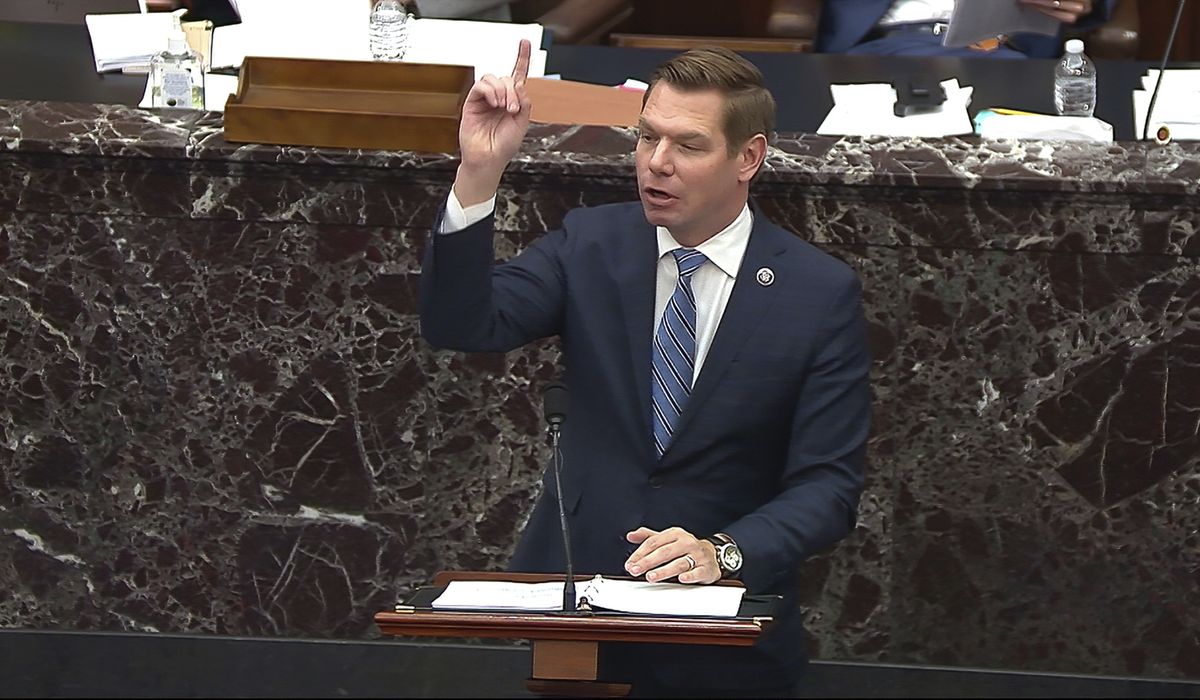Rep. Eric Swalwell, D-Calif., has made sensational statements into a signature style over the last couple years. However, this week Swalwell appears to be contesting the touchstone of due process: the presumption of innocence. On Tuesday, Swalwell declared that, President Donald Trump refuses to give Congress the documents and witnesses that it has demanded, he is clearly guilty of all charged offenses. Swalwell declared “We can only conclude that you’re guilty.” Trump has gone to the courts to challenge the demands under presidential immunities and privileges.
Swalwell’s position further extends the troubling premise of the obstruction article of impeachment. The House is moving to impeach Trump for failing to yield on its demands during a relatively short period of investigation. It will be impeaching him despite that fact that the Supreme Court just took a case to consider his challenges to a demand for his tax and finance record.
That however is not enough for Swalwell who believes that members should not only effectively impeach a president for challenging such demands but should also conclude that he is guilty: “In America, innocent men do not hide and conceal evidence. They are forthcoming and they want to cooperate and the president is acting like a very guilty person right now.”
So much for the Fifth Amendment. It is not clear if the same standard applied to President Barack Obama when he went to court rather than turn over material in the “Fast and Furious” investigation.
It will be interesting how this extreme anti-due process view will impact Swalwell’s effort to be named one of the House managers. This view could be played back to the Senate as an example of the unhinged position of some members in this impeachment.
Reprinted with permission from JonathanTurley.org.



